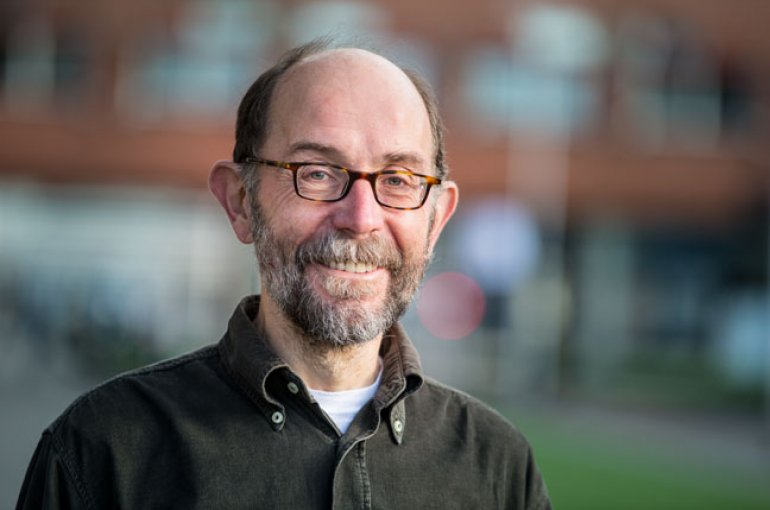Researchers of Utrecht University involved in two STW Perspective programmes
Prof. Jan Tommassen leads programme for rapid development of new vaccines

Researchers from Utrecht are involved in two of the five Perspective programmes honoured by technology foundation STW. A collaborative effort by university researchers and companies, under the leadership of Utrecht University Prof. Jan Tommassen (Biology), will develop techniques to speed up the process of developing new vaccines against bacterial infections. Utrecht University Prof. Henk Haagsman (Veterinary Medicine) is also involved in the programme. Dr. Ben Erné (Chemistry) is a co-applicant for the programme to develop a technique for retrieving recyclable high-tech materials from waste flows. A total of 28 proposals were submitted to the Perspective programme.
Bac-Vactory: A Technology Center for Bacterial Vaccines
Programme leader: Prof. J.P.M. Tommassen (Utrecht University)
Participants: Immuno Valley (Zoetis, Abera Biosciences, Merial, GlaxoSmithKline), Central Veterinary Institute, Radboud University Nijmegen, Radboudumc, VU Amsterdam, VUmc, Prof. H.P. Haagsman, Utrecht University
Diseases caused by bacterial infections are becoming increasingly difficult to treat due to antibiotic resistance. Vaccination can prevent these diseases in humans and animals, but the development of good vaccines is expensive and time consuming, so the researchers are working to develop new techniques. “In the Bac-Vactory programme, we focus on four bacteria, but the techniques should be widely applicable to a broad range of bacteria”, explains Jan Tommassen, Professor of Molecular Microbiology at Utrecht University.
Closely related bacteria
Bac-Vactory is based on closely related bacteria that cause similar infectious diseases in humans and animals. The development process for animal vaccines is faster than that for humans, so the researchers expect that successful formulas for animal vaccines will help to speed up the introduction of comparable vaccines against related bacteria for humans.
Intensive care
The programme’s researchers will focus on the bacteria Bordetella pertussis, which causes whooping cough in humans, and Bordetella bronchiseptica, which causes similar diseases in pigs and dogs. “Due to a variety of reasons, the current vaccine against whooping cough no longer offers effective protection, so a new vaccine is urgently needed”, according to Prof. Tommassen. The other targets are Streptococcus pneumoniae and Streptococcus suis, which cause pneumonia and even more serious invasive infections, such as meningitis and sepsis, in humans and animals. “In the Netherlands alone, more than 2,500 people are admitted to intensive care each year due to an invasive infection with these bacteria, so we have to do something about that as well.”
Three million euros has been set aside for the project, including two million from the STW technology foundation Perspective programme and one million from the participating companies.
Innovative Magnetic Density Separation for the optimal use of resources and energy
Programme leader: Prof. P.C. Rem (TU Delft)
Participants: Urban Mining Corp, Didde Magnetic Engineering, Radboud University Nijmegen, Eindhoven University of Technology, University of Twente, Dr. B.H. Erné, Utrecht University
The programme’s objective is to develop a technique for retrieving high-tech materials from waste flows. These waste flows consist of more than 100 high-tech materials, which are often used in production as thin wires, foils and other fine structures. “If we meet our objectives, it will present significant new opportunities for the recycling of materials, with the resulting savings in raw materials and energy”, according to Dr. Ben Erné from Utrecht University, an expert in the field of colloid chemistry and physics of magnetic fluids.
Magnetic density separation
The researchers utilise the technique of magnetic density separation (MDS), a unique form of float-sink separation. In this case, particles gather at a specific height in a magnetic fluid according to the density of the material. MDS is a cheap and energy-efficient separation technique, which is especially suitable for fine particles.
Conserving raw materials and energy
The technological development is currently progressing at a rapid pace. The collaboration in this programme can help researchers take a major step forward in the further development of MDS as a recycling technique for high-tech materials - and in so doing, conserve raw materials and energy.
Three million euros has been set aside for the project, including two million from the STW technology foundation Perspective programme and one million from the participating companies.
Perspective for Top Sectors
The five research proposals honoured were selected as part of the STW technology foundation funding programme ‘Perspective for the Top Sectors’. This programme challenges scientists to join together with private parties to set up innovative research projects related to the top sectors. In total, STW will contribute 16 million euros and the companies will contribute 8 million.
Life Sciences and Sustainability
The development of techniques to speed up the process of finding new vaccines for bacterial infections is an example of research that falls under Utrecht University’s strategic research theme Life Sciences. The development of MDS in order to retrieve high-tech materials from waste flows is an example of Future Energy & Resources research as part of Utrecht University’s strategic theme Sustainability.

